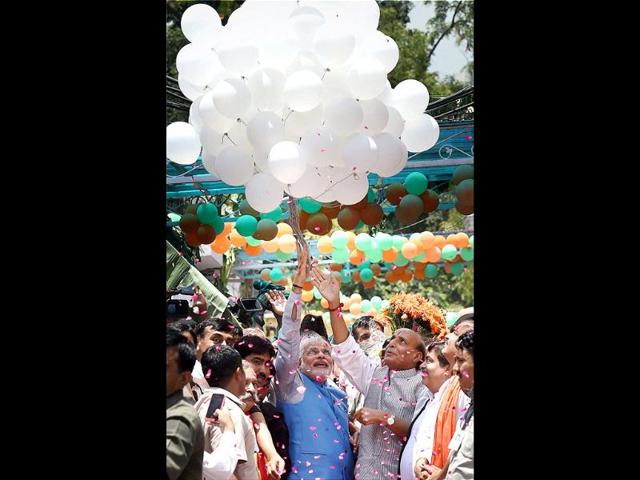First past the post: Congress is the main beneficiary
Narendra Modi’s Monday coronation — marked by much general fanfare — also saw several members of the liberal intelligentsia calling his government ‘the most unrepresentative ever’. Dhruba Jyoti Purkait writes.
Narendra Modi’s Monday coronation — marked by much general fanfare — also saw several members of the liberal intelligentsia calling his government ‘the most unrepresentative ever’. The charge, first made by former West Bengal governor Gopalkrishna Gandhi and later by a bevy of academics, is that the BJP won a “mere” 31% of the votes, which invalidates its victory.

And therein lay the flaw. Most people aware of India’s first-past-the-post (FPTP) system would know that an ‘outrageous’ vote share may return a government with a majority of seats. While most national governments have had a vote share of around 40%, major state elections have regularly seen winning parties polling less than 40% — the Trinamool Congress won 38.9% in West Bengal in 2011. And yet, no one questioned the victory.
Similarly, the AAP government in Delhi didn’t come under trenchant criticism for ruling the Capital without commanding a third of the vote share. Moreover, everyone’s favourite BJP PM — AB Vajpayee — didn’t even have the top vote share in 1999. His 23.75% trailed the Congress’ 28.3% by over four percentage points but that didn’t stop him from forming the government.
Contrary to the inference made by the recent spate of news articles, the main beneficiary of the FPTP has been the Congress, as argued by historian Perry Anderson in his recent book The Indian Ideology. The system, he says, was devised to continue the Congress monopoly and the party consequently enjoyed massive majorities despite its vote share mostly remaining below the halfway mark.
Blaming the BJP for the FPTP’s vagaries and calling them manipulation, therefore, is erroneous. The repeated comparison with the 1977 elections doesn’t hold water, either. Though it is true that the Congress had polled a significantly higher vote share in 1977 than the BJP in 2014, the total number of participating parties was 34, which has burgeoned to more than 450 now.
Opposition to the BJP and Modi is good. But to hold him to a standard not applied uniformly is irrational. Whether the FPTP is the best system for India is another debate. But it is undeniable that its main beneficiary has been the Congress, a fact that the intelligentsia is choosing to ignore. And to call an election a ‘manipulation’ is to disrespect those who disagree with your views.



